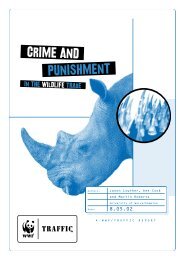Deeper Luxury Report - WWF UK
Deeper Luxury Report - WWF UK
Deeper Luxury Report - WWF UK
You also want an ePaper? Increase the reach of your titles
YUMPU automatically turns print PDFs into web optimized ePapers that Google loves.
Conclusion<br />
As our consumption habits chew up both people<br />
and the planet, so our desires for human creations<br />
are making luxuries out of nature’s creation.<br />
Clean water, safe food, breathable air, a peaceful<br />
community, and a walk in nature are already scarce<br />
luxuries for many people – unfulfilled desires for<br />
basic needs. New consumption habits within a<br />
sustainable economy are urgently needed, to<br />
create a one planet future. Given its global brand<br />
power, the luxury industry should demonstrate<br />
greater leadership on this agenda.<br />
Despite strong commercial drivers for greater<br />
sustainability, luxury brands have been slow<br />
to respond. The largest luxury conglomerates<br />
have been ranked on their social and environmental<br />
performance for the first time, and none<br />
scored highly.<br />
<strong>Luxury</strong> brands face criticism that they fuel<br />
unnecessary consumption and provoke discontent<br />
among poorer members of society. This has been<br />
true of some (shallow) forms of luxury that waste<br />
resources or exploit vulnerable people. Increasingly,<br />
however, consumers require deeper, more complex<br />
experiences, emotions and connections. Selfishness<br />
is frowned upon; altruism is respected.<br />
Stuart Walker, a professor of design, explains<br />
that “an object can become the culmination,<br />
physical manifestation and symbol of good works –<br />
in its intention, design making, use and disposal...<br />
Beauty can be captured in the object through<br />
what it represents, and not simply through<br />
its appearance”. 139<br />
Today’s social, environmental and cultural challenges<br />
are reminding us that true wealth is the ability to<br />
provide not only for one’s own needs, but for those<br />
of others.<br />
This is an ancient idea that exists today in many<br />
cultures. For instance, mana is a concept used<br />
across the Pacific Islands to describe a force<br />
or quality that resides in people, animals and<br />
inanimate objects, that instills in the appreciative<br />
observer a sense of respect or wonder. 140<br />
If someone<br />
has a lot of mana, they have the power, energy and<br />
ability to make a difference. This is because in a<br />
tribe “wealth” is, by definition, of benefit to the<br />
tribe. As global awareness increases and we come<br />
to understand ourselves as a one planetary tribe,<br />
perhaps we will rediscover how prestige and status<br />
should come from having unusual access to the<br />
energies that help others. <strong>Luxury</strong> brands can be<br />
part of that process. If not, they may come to be<br />
regarded as shallow, perhaps almost as fake as<br />
the counterfeits.<br />
In Chapter 9, we offered some guidance to luxury<br />
executives wishing to embrace the sustainability<br />
agenda. We believe that adopting this approach will<br />
produce deeper, more rewarding experiences to<br />
consumers, staff, investors and local communities.<br />
The pioneering brands and people we have profiled<br />
in this report suggest we are seeing the birth of a<br />
movement for authentic luxury that could remind us<br />
all that sustainability is truly our highest aspiration<br />
and greatest success. We challenge more celebrities<br />
to join this movement, by bringing their commercial<br />
endorsements into alignment with the values and<br />
causes they champion, and by committing to the<br />
Star Charter. More than anything, that will answer<br />
the question: “what are you made of”?


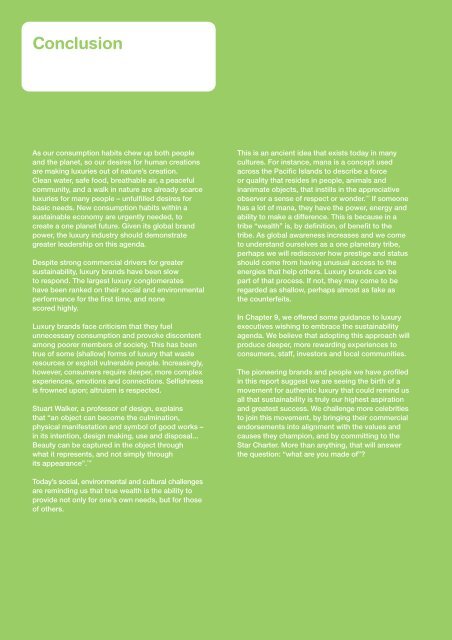
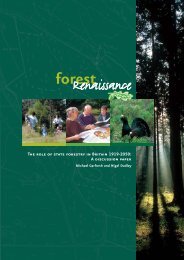
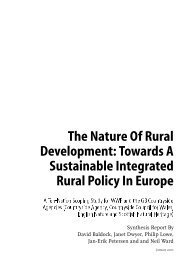
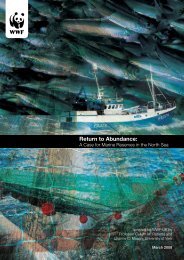
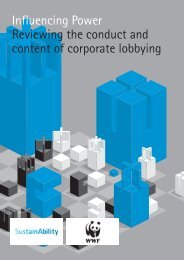
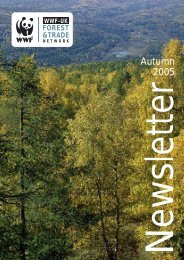
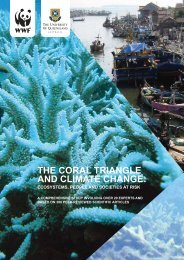
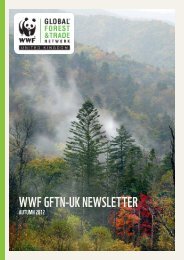
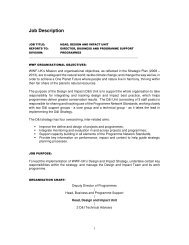
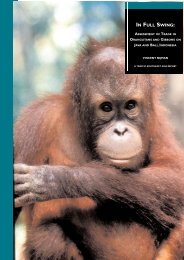
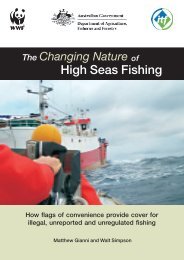
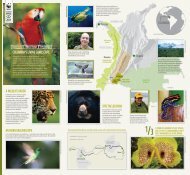
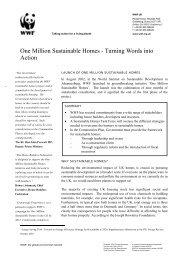
![[PDF] Causes for concern: chemicals and wildlife - WWF UK](https://img.yumpu.com/31929970/1/184x260/pdf-causes-for-concern-chemicals-and-wildlife-wwf-uk.jpg?quality=85)
